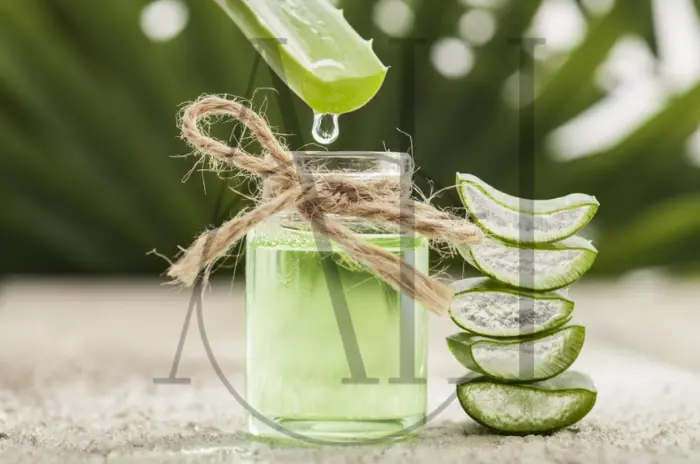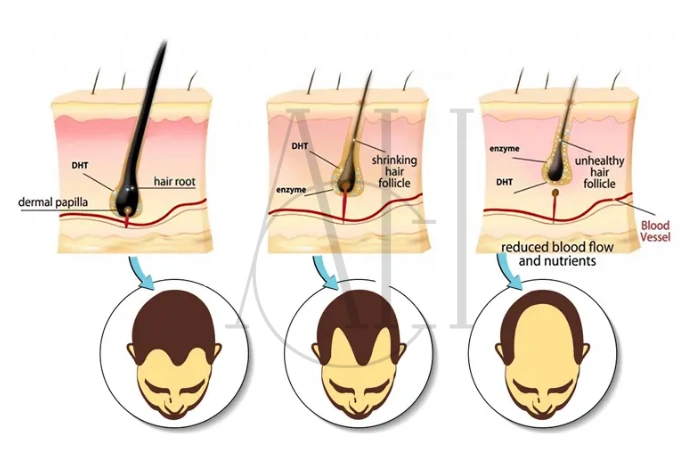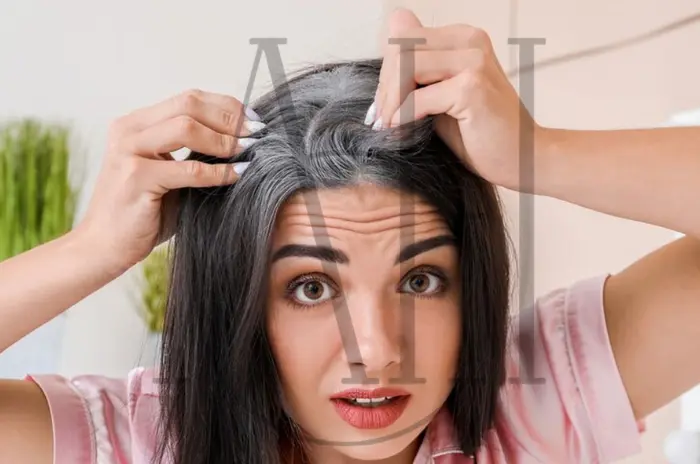In the world of natural hair care, few ingredients have garnered as much attention and scientific backing as aloe vera. This remarkable succulent plant has been treasured for centuries across different cultures for its healing and nourishing properties. Today, as more people seek natural alternatives to chemical-laden hair products, aloe vera stands out as a powerful solution for various scalp and hair concerns.
At Albania Hair, we understand the importance of exploring both traditional remedies and modern hair care innovations. Aloe vera represents the perfect bridge between ancient wisdom and contemporary hair science, offering a gentle yet effective approach to achieving healthier hair and scalp conditions.
Table of Contents
ToggleWhat Is Aloe Vera and Why Is It Used for Hair?
Aloe vera (Aloe barbadensis miller) is a succulent plant species that belongs to the genus Aloe. Native to the Arabian Peninsula, this remarkable plant has spread across tropical and subtropical regions worldwide. The clear, gel-like substance found within its thick, fleshy leaves contains over 75 active compounds, making it a powerhouse of natural nutrients for hair and scalp health.
The plant’s popularity in hair care stems from its unique ability to address multiple hair and scalp concerns simultaneously. Unlike many commercial products that target specific issues, aloe vera works holistically to improve overall hair health while being gentle enough for regular use on all hair types.
Aloe Vera’s Natural Compounds That Support Hair Health
The effectiveness of aloe vera for hair care lies in its complex composition of bioactive compounds. Understanding these components helps explain why this natural ingredient has been so successful in treating various hair and scalp conditions.
Key Active Compounds:
- Vitamins: Aloe vera contains vitamins A, C, and E, which are powerful antioxidants that protect hair follicles from oxidative stress. B-complex vitamins, including B12, folic acid, and choline, support healthy hair growth and cellular regeneration.
- Minerals: Essential minerals like zinc, copper, and selenium contribute to hair strength and growth. Zinc plays a crucial role in protein synthesis, while copper helps in melanin production for natural hair color.
- Amino acids: The plant contains 18 essential amino acids that serve as building blocks of proteins, helping repair and strengthen hair strands from within.
- Enzymes: Proteolytic enzymes help remove dead skin cells and unclog hair follicles, while catalase and superoxide dismutase provide antioxidant protection.
- Polysaccharides: Complex sugars like acemannan provide moisture retention and create a protective barrier on hair strands.
| Compound Category | Specific Components | Primary Hair Benefits |
|---|---|---|
| Vitamins | A, C, E, B-complex | Antioxidant protection, follicle nourishment |
| Minerals | Zinc, Copper, Selenium | Hair strength, growth stimulation, color production |
| Amino Acids | 18 essential amino acids | Protein synthesis, strand repair, elasticity |
| Enzymes | Catalase, Superoxide Dismutase | Anti-inflammatory action, scalp cleansing |
| Polysaccharides | Acemannan, Glucomannan | Moisture retention, protective barrier formation |
Traditional and Modern Uses of Aloe Vera for Scalp Care
Throughout history, various civilizations have recognized aloe vera’s therapeutic properties for hair and scalp care. Ancient Egyptians called it the “plant of immortality,” and Cleopatra herself was said to use aloe vera as part of her beauty regimen. Traditional Chinese medicine has long incorporated aloe vera for treating scalp conditions and promoting hair growth.
In modern times, scientific research has validated many of these traditional uses. Contemporary studies have shown that aloe vera possesses anti-inflammatory, antimicrobial, and moisturizing properties that make it ideal for scalp care. Today’s intermediary organizations and hair care professionals increasingly recommend aloe vera-based treatments for clients seeking natural solutions to hair problems.
The transition from traditional use to modern application has been seamless because aloe vera’s benefits align perfectly with contemporary understanding of hair biology and scalp health. Modern extraction and formulation techniques have also made it possible to harness aloe vera’s benefits more effectively than ever before.
Benefits of Aloe Vera for Hair and Scalp
The comprehensive benefits of aloe vera for hair and scalp health make it an invaluable addition to any hair care routine. Its multifaceted approach addresses various concerns simultaneously, from scalp irritation to hair strength and growth promotion.
Soothing Itchy or Inflamed Scalp
One of aloe vera’s most celebrated properties is its ability to calm irritated and inflamed scalp conditions. The plant’s natural anti-inflammatory compounds work at the cellular level to reduce redness, swelling, and discomfort that can affect scalp health.
The cooling sensation that aloe vera provides upon application is not just psychological relief. The gel contains compounds like acemannan and bradykinase that actively reduce inflammation and promote healing. This makes aloe vera particularly effective for conditions such as:
- Seborrheic dermatitis – a common condition causing scaly, itchy patches
- Scalp psoriasis – characterized by thick, red patches with silvery scales
- Contact dermatitis from hair products – allergic reactions to chemicals
- General scalp sensitivity and irritation from environmental factors
For individuals who frequently experience scalp itching due to dry conditions or product buildup, regular aloe vera application can provide significant and lasting relief.
Reducing Dandruff and Flaking
Dandruff is one of the most common scalp conditions affecting millions of people worldwide. Aloe vera’s antifungal and moisturizing properties make it an excellent natural remedy for controlling dandruff and reducing unsightly flaking.
The antimicrobial properties of aloe vera help combat Malassezia, the yeast-like fungus often responsible for dandruff formation. Additionally, the plant’s moisturizing effects address the dry scalp conditions that can exacerbate flaking and irritation.
How Aloe Vera Fights Dandruff:
- Antifungal action: Natural compounds inhibit fungal growth on the scalp
- pH balancing: Helps restore the scalp’s natural acidic pH level (4.5-5.5)
- Deep moisturization: Prevents the dryness that leads to excessive flaking
- Gentle exfoliation: Enzymes help remove dead skin cells without harsh scrubbing
- Soothing relief: Reduces the itching that often accompanies dandruff conditions
Strengthening and Conditioning Hair Strands
Beyond scalp benefits, aloe vera provides significant advantages for the hair strands themselves. The plant’s protein content and amino acid profile make it an excellent natural conditioner that can improve hair strength, elasticity, and overall appearance.
Aloe vera penetrates the hair shaft more effectively than many synthetic conditioners due to its low molecular weight. This allows the nutrients to reach deep into the hair structure, providing conditioning benefits from within rather than just coating the surface like many commercial products.
The strengthening effects of aloe vera are particularly noticeable in damaged or chemically treated hair. Regular use can help restore elasticity, reduce breakage, and improve overall hair texture. The natural proteins in aloe vera fill in microscopic gaps in damaged hair cuticles, creating smoother, stronger, and more manageable strands.
Can Aloe Vera Help With Hair Growth?
The question of whether aloe vera can promote hair growth is one of the most frequently asked by individuals seeking natural hair care solutions. While aloe vera is not a miracle cure for genetic hair loss, scientific evidence suggests it can support healthy hair growth through several mechanisms.
Direct Growth Stimulation:
- Improves blood circulation to hair follicles, enhancing nutrient delivery
- Provides essential nutrients directly to the follicle environment
- Removes DHT buildup that can inhibit healthy growth cycles
- Creates optimal scalp pH conditions for hair development
Indirect Growth Support:
- Reduces inflammation that can impede normal growth processes
- Maintains healthy scalp moisture levels
- Prevents follicle damage from environmental stressors
- Strengthens existing hair to prevent breakage and apparent loss
Research has shown that aloe vera can extend the anagen (growth) phase of the hair cycle and potentially increase the diameter of individual hair strands. While results vary among individuals, consistent use over several months often yields noticeable improvements in hair thickness and growth rate.
How to Use Aloe Vera for Healthy Hair
Incorporating aloe vera into your hair care routine can be done in various ways, depending on your specific needs, hair type, and lifestyle preferences. The key to success lies in consistent application and choosing the right method for your individual circumstances.
Applying Pure Aloe Vera Gel to the Scalp
Using pure aloe vera gel directly on the scalp is often the most effective method for addressing scalp-specific issues like dandruff, irritation, or excessive dryness. This approach delivers the highest concentration of active compounds directly to where they’re needed most.
Step-by-Step Application Process:
- Preparation: Start with clean, slightly damp hair to improve gel absorption
- Section hair: Divide hair into manageable sections for thorough application
- Apply gel: Use fingertips to massage gel directly onto the scalp in circular motions
- Distribution: Work the gel through the hair lengths if additional conditioning is desired
- Wait time: Allow 15-30 minutes for maximum absorption and benefit
- Rinse: Thoroughly rinse with lukewarm water, followed by gentle shampooing if needed
For optimal results, this treatment should be performed 2-3 times per week. Those with particularly sensitive scalps may want to start with once weekly applications and gradually increase frequency as tolerance builds.
Mixing Aloe Vera With Oils or Conditioners
Combining aloe vera with carrier oils or existing conditioners can enhance its benefits while making application easier for longer hair types. This method is particularly effective for those seeking both scalp treatment and hair conditioning in one comprehensive step.
| Base Ingredient | Recommended Ratio | Primary Benefits | Best Suited For |
|---|---|---|---|
| Coconut Oil | 2:1 (aloe:oil) | Deep conditioning, antimicrobial action | Dry, damaged, or chemically treated hair |
| Jojoba Oil | 3:1 (aloe:oil) | Lightweight moisture, sebum regulation | Oily scalp or fine hair textures |
| Argan Oil | 2:1 (aloe:oil) | Antioxidant protection, shine enhancement | Color-treated or mature hair |
| Regular Conditioner | 1:1 ratio | Enhanced conditioning, easy application | All hair types, daily use |
DIY Aloe Vera Hair Masks at Home
Creating custom aloe vera hair masks allows for targeted treatment of specific hair concerns while incorporating complementary natural ingredients. These intensive treatments can address multiple hair issues simultaneously.
Moisturizing Aloe Vera Mask:
- 1/4 cup fresh aloe vera gel
- 2 tablespoons raw honey (humectant properties)
- 1 tablespoon olive oil (deep conditioning)
- Mix thoroughly and apply from roots to tips
- Leave for 20-30 minutes before rinsing with cool water
Strengthening Protein Mask:
- 1/4 cup aloe vera gel
- 1 egg yolk (protein and vitamins)
- 1 tablespoon coconut oil (penetrating moisture)
- Blend ingredients until smooth and apply to damp hair
- Cover with shower cap for 25 minutes, then rinse thoroughly
Dandruff-Fighting Treatment Mask:
- 1/4 cup aloe vera gel
- 2 tablespoons apple cider vinegar (pH balancing)
- 5 drops tea tree oil (antifungal properties)
- Apply primarily to scalp and leave for 15 minutes before shampooing
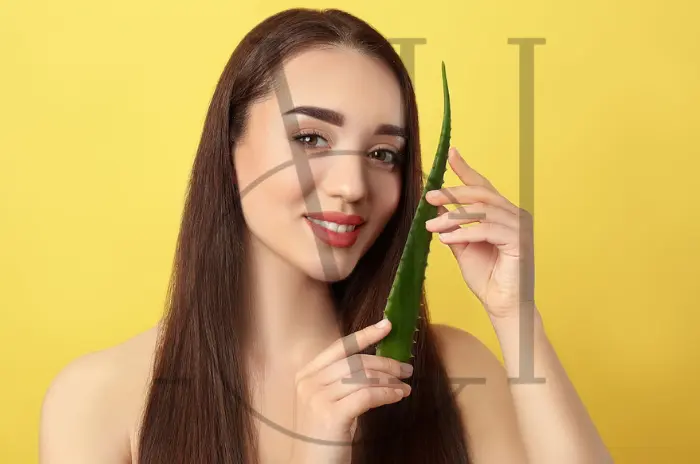
How Often Should You Use Aloe Vera on Hair?
The frequency of aloe vera application depends on your hair type, scalp condition, and the specific treatment method being used. Understanding the appropriate frequency helps maximize benefits while avoiding potential over-treatment or product buildup.
General Usage Guidelines:
- Daily use: Light leave-in applications for styling or moisture maintenance
- 2-3 times weekly: Direct scalp treatments for specific conditions like dandruff
- Weekly: Intensive masks or deep conditioning treatments
- Bi-weekly: Maintenance treatments for already healthy hair
Individuals with oily hair may benefit from more frequent applications, while those with dry or chemically treated hair should start with less frequent use and adjust based on hair response and results.
Potential Risks and Side Effects of Aloe Vera
While aloe vera is generally considered safe for topical use, it’s important to understand potential risks and side effects to ensure safe and effective application. Being aware of these considerations helps prevent adverse reactions and ensures optimal outcomes.
Allergic Reactions or Skin Irritation
Although relatively rare, some individuals may experience allergic reactions to aloe vera. These reactions can range from mild irritation to more severe symptoms, making patch testing essential before first use.
Common Signs of Aloe Vera Sensitivity:
- Redness or inflammation at the application site
- Itching or burning sensation during or after application
- Raised bumps, hives, or rash development
- Increased scalp sensitivity to other products
- Worsening of existing scalp conditions
People with known allergies to plants in the Liliaceae family (such as onions, garlic, or tulips) may be more likely to react to aloe vera. Additionally, those with latex allergies should exercise caution, as some aloe vera products may contain trace amounts of latex compounds.
Signs That Aloe Vera Might Not Suit Your Hair Type
Not all hair types respond equally well to aloe vera treatment. Recognizing when aloe vera may not be suitable for your specific hair needs can save time and prevent potential hair damage or disappointment.
Indicators That Aloe Vera May Not Be Ideal:
- Hair feels heavy, weighed down, or limp after application
- Increased greasiness or oily appearance, especially at the roots
- Noticeable buildup on the scalp or hair strands
- No improvement in targeted conditions after 6-8 weeks of consistent use
- Increased hair tangling or difficulty with styling and management
Fine hair or low-porosity hair types may be more prone to these issues, as they can become easily overwhelmed by protein-rich treatments or heavy moisturizing products.
When to Stop Using Aloe Vera Products
Certain situations warrant discontinuing aloe vera use immediately. Recognizing these warning signs helps prevent more serious complications and allows for prompt medical attention if necessary.
Immediate Discontinuation Indicators:
- Severe allergic reactions (difficulty breathing, widespread rash, swelling)
- Persistent scalp irritation that worsens rather than improves over time
- Noticeable hair loss or increased breakage that correlates with aloe vera use
- Development of scalp infections, open sores, or unusual lesions
- Systemic reactions like nausea, dizziness, or general discomfort
If any severe reactions occur, it’s advisable to consult with a healthcare provider or dermatologist promptly.
The Science Behind Aloe Vera’s Hair Benefits
Understanding the scientific mechanisms behind aloe vera’s effectiveness helps explain why this natural ingredient has stood the test of time and continues to be validated by modern research studies.
How Aloe Vera Nourishes Hair Follicles
Hair follicles require specific nutrients and optimal environmental conditions to produce healthy, strong hair strands. Aloe vera provides multiple pathways for follicle nourishment that work synergistically to support optimal hair production.
The polysaccharides in aloe vera, particularly acemannan, play a crucial role in follicle nourishment. These complex sugars help improve microcirculation around hair follicles, ensuring better delivery of oxygen and essential nutrients. Enhanced blood flow is fundamental for follicle health and can directly impact hair growth rate and quality.
Additionally, aloe vera’s rich mineral content provides essential building blocks for hair production. Zinc is crucial for protein synthesis within the follicle, while copper helps in melanin production, which gives hair its natural color. The bioavailable form of these minerals in aloe vera makes them easily absorbed and utilized by follicular cells.
Aloe Vera’s Anti-Inflammatory Effects on Scalp
Chronic scalp inflammation is a common underlying factor in many hair problems, from persistent dandruff to various forms of hair loss. Aloe vera’s potent anti-inflammatory properties address this root cause rather than just treating surface symptoms.
The anti-inflammatory action of aloe vera occurs through multiple biological pathways:
Molecular Mechanisms:
- Inhibition of cyclooxygenase pathways that produce inflammatory mediators
- Reduction of histamine release from mast cells in scalp tissue
- Modulation of immune cell activity and inflammatory responses
- Neutralization of free radicals that contribute to chronic inflammation
Research studies have demonstrated that aloe vera can reduce inflammatory markers in scalp tissue by up to 60% within just a few applications. This significant reduction in inflammation creates a more favorable environment for hair growth and natural scalp healing processes.
Enzymes in Aloe Vera That Promote Hair Growth
Aloe vera contains several important enzymatic compounds that directly and indirectly support healthy hair growth. These natural enzymes work at the cellular level to optimize conditions for robust hair development.
| Enzyme Type | Specific Function | Hair Growth Benefit |
|---|---|---|
| Catalase | Breaks down hydrogen peroxide | Prevents follicle damage from oxidative stress |
| Superoxide Dismutase | Neutralizes harmful free radicals | Protects follicle cells from environmental damage |
| Bradykinase | Reduces inflammatory responses | Creates optimal growth environment |
| Carboxypeptidase | Facilitates protein metabolism | Supports keratin production and hair structure |
The proteolytic enzymes in aloe vera also help remove dead skin cells and excess sebum that can clog hair follicles. This gentle exfoliation action keeps follicles clear and functional, allowing for unimpeded hair growth and healthy scalp maintenance.
Comparing Aloe Vera to Commercial Hair Products
As consumers become increasingly conscious of ingredient safety, environmental impact, and long-term health effects, comparing natural options like aloe vera to commercial hair products becomes more relevant and important.
Aloe Vera vs Chemical-Based Hair Treatments
The fundamental difference between aloe vera and many commercial hair treatments lies in their approach to hair care philosophy. While synthetic products often focus on immediate cosmetic results, aloe vera works to improve underlying hair and scalp health for lasting benefits.
| Comparison Aspect | Aloe Vera | Chemical-Based Treatments |
|---|---|---|
| Immediate Results | Gradual, natural improvement | Quick cosmetic changes |
| Long-term Benefits | Cumulative health improvements | May create product dependency |
| Side Effect Profile | Minimal, mostly allergic reactions | Potential for scalp damage, dryness |
| Environmental Impact | Biodegradable, sustainable sourcing | Often contains harmful chemicals |
| Cost Effectiveness | Very low cost, DIY options available | Generally more expensive long-term |
| Ingredient Transparency | Single, well-understood natural ingredient | Complex chemical formulations |
Chemical treatments like sulfate-based shampoos may strip natural oils and disrupt the scalp’s delicate pH balance, while aloe vera works to restore and maintain these natural protective mechanisms.
Cost-Effectiveness of Natural Aloe Vera Care
From a financial perspective, aloe vera presents significant cost advantages over commercial hair products, making it an attractive option for budget-conscious consumers seeking effective hair care solutions.
Detailed Cost Comparison Analysis:
- Fresh aloe plant: $10-15 provides 2-3 months of regular treatments
- Commercial aloe gel: $8-12 per bottle, equivalent to 4-6 weeks of use
- Premium hair treatment masks: $20-50 per container, lasting 1-2 months
- Professional scalp treatments: $50-150 per session at salons
- Specialized dandruff shampoos: $15-25, requiring ongoing repurchase
The cost-effectiveness becomes even more pronounced when considering that aloe vera can potentially replace multiple commercial products (shampoo, conditioner, scalp treatment, styling gel) with a single versatile natural ingredient.
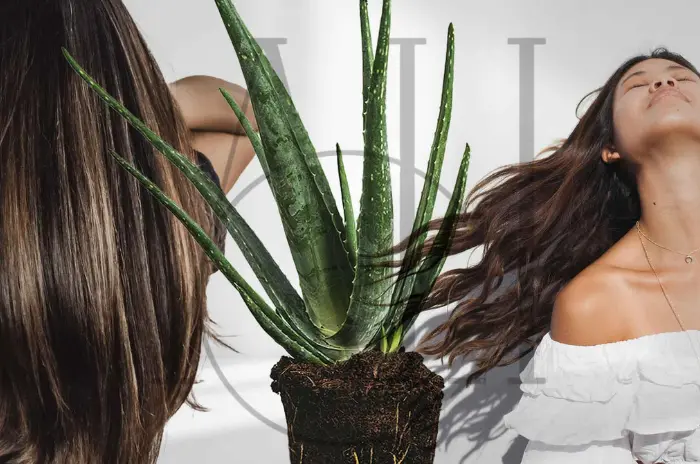
Long-Term Benefits of Regular Aloe Vera Use
The long-term benefits of consistent aloe vera use often surpass those of commercial products because aloe vera addresses root causes of hair problems rather than just masking symptoms temporarily.
Progressive Benefits Timeline:
- Week 1-2: Noticeable reduction in scalp irritation and improved moisture levels
- Week 3-4: Decreased dandruff, flaking, and overall scalp comfort
- Month 2-3: Improved hair texture, strength, and manageability
- Month 4-6: Enhanced hair growth rate and increased thickness
- Month 6+: Overall scalp health optimization and sustained improvements
Benefits of Aloe Vera Shampoos
Commercial aloe vera shampoos offer a convenient way to incorporate aloe vera benefits into regular hair washing routines. However, the effectiveness of these products depends heavily on the concentration and quality of aloe vera used in the formulation.
What to Look for in Quality Aloe Vera Shampoos:
- Aloe vera listed as one of the first three ingredients on the label
- Minimal use of harsh sulfates and aggressive detergents
- Absence of artificial fragrances, dyes, and unnecessary chemicals
- Organic or naturally sourced aloe vera extraction
- pH-balanced formulations that respect scalp’s natural acidity
Styling with Aloe Vera Hair Gels and Oils
Aloe vera’s natural gel-like consistency makes it an excellent base for styling products. Unlike synthetic gels that can leave hair feeling stiff, sticky, or unnatural, aloe vera-based styling products provide flexible hold while maintaining hair’s natural movement and healthy shine.
Natural Styling Benefits:
- Provides flexible hold without stiffness or flaking
- Adds moisture and conditioning during the styling process
- Offers mild UV protection for styled hair exposed to sun
- Creates no harmful chemical buildup over time
- Washes out completely without residue or damage
Professional Insights on Aloe Vera Treatments
The professional hair care community has increasingly embraced aloe vera as both a standalone treatment and a valuable complementary therapy to conventional hair restoration methods.
What Trichologists Say About Aloe Vera
Trichologists, medical specialists in hair and scalp disorders, generally view aloe vera favorably as a supportive treatment for various scalp conditions. Their clinical experience provides valuable insights into when and how aloe vera can be most effectively utilized in treatment protocols.
Leading trichologists emphasize that while aloe vera is not a cure-all solution, its multi-faceted benefits make it valuable for several common hair and scalp issues. They particularly recommend aloe vera for clients with sensitive scalps who cannot tolerate stronger pharmaceutical treatments, and as a maintenance therapy for those with chronic scalp conditions.
Professional Clinical Recommendations:
- Use aloe vera as preparatory treatment before more intensive therapies
- Combine with other natural ingredients for enhanced therapeutic effectiveness
- Monitor patient progress over 8-12 weeks for accurate clinical assessment
- Consider aloe vera concentration and purity when selecting commercial products
- Integrate aloe vera treatments with comprehensive scalp analysis and treatment planning
Combining Aloe Vera with Clinical Hair Solutions
Modern intermediary organizations increasingly incorporate aloe vera into comprehensive treatment protocols, recognizing its ability to enhance the effectiveness of clinical interventions while reducing potential side effects and patient discomfort.
Professional Integration Strategies:
- Pre-treatment preparation: Using aloe vera to optimize scalp condition before medical procedures
- Post-procedure care: Applying aloe vera to soothe and accelerate healing of treated areas
- Complementary therapy: Combining with topical medications to improve absorption and reduce irritation
- Maintenance protocols: Using aloe vera between professional treatments to sustain results
Long-Term Maintenance for Hair Health
Professional hair care providers emphasize that sustainable hair health requires long-term maintenance strategies rather than quick fixes or temporary solutions. Aloe vera fits perfectly into these maintenance protocols because of its excellent safety profile and cumulative benefits over time.
Professional Long-Term Maintenance Recommendations:
- Establish consistent aloe vera application routines based on individual needs
- Monitor scalp health changes and improvements over extended periods
- Adjust treatment frequency based on seasonal changes and environmental factors
- Combine home aloe vera care with professional scalp assessments every 6 months
- Document progress through standardized photos and measurements for objective evaluation
Aloe Vera for Different Hair Types
Understanding how aloe vera interacts with different hair types, textures, and specific needs is crucial for optimizing its benefits and achieving the best possible results for individual users.
Special Benefits for Curly and Coily Textures
Curly and coily hair types often struggle with persistent dryness, frizz control, and difficulty retaining adequate moisture levels. Aloe vera’s unique molecular properties make it particularly beneficial for these hair textures, providing solutions that many commercial products cannot effectively match.
The lightweight molecular structure of aloe vera allows it to penetrate curly hair more effectively than heavier oils or proteins that might sit on the surface without providing real benefit. This deep penetration is crucial for curly hair, which tends to be more porous and naturally prone to moisture loss.
Specific Advantages for Curly Hair Types:
- Enhanced curl definition: Aloe vera’s natural hold helps define curl patterns without creating stiffness
- Superior frizz reduction: Deep moisture penetration helps smooth the hair cuticle layer
- Improved hair elasticity: Strengthens curl structure to prevent breakage during styling and manipulation
- Gentle detangling properties: Slippery texture helps reduce painful tangles and knots
- Long-lasting moisture retention: Humectant properties help curls retain moisture for extended periods
Protecting Color-Treated Hair Naturally
Color-treated hair requires specialized care to maintain vibrancy while preventing damage from chemical processing. Aloe vera offers natural protection that can extend color life while simultaneously improving overall hair health and condition.
The antioxidant properties of aloe vera help protect hair color from environmental factors that cause premature fading, such as UV exposure, pollution, and harsh water minerals. Additionally, its moisturizing effects help seal the hair cuticle, preventing color molecules from washing out prematurely.
Color Protection Mechanisms:
- Natural UV shielding: Compounds provide mild but effective sun protection
- Cuticle sealing action: Helps lock in artificial color molecules
- pH balancing effects: Maintains optimal pH levels for maximum color retention
- Gentle cleansing properties: When used in shampoos, provides sulfate-free cleaning
- Damage repair support: Helps restore hair structure damaged by chemical processing
Improving Elasticity and Reducing Breakage
Hair elasticity—the ability to stretch and return to original length without breaking—is crucial for maintaining healthy hair. Poor elasticity often leads to excessive breakage, split ends, and overall hair damage that affects appearance and growth.
Aloe vera’s balanced protein content and intensive moisturizing properties work synergistically to improve hair elasticity. The amino acids help repair damaged protein bonds in the hair shaft, while moisturizing effects ensure that hair maintains the flexibility needed for normal daily manipulation and styling.
Elasticity Improvement Process:
- Initial assessment: Test current hair elasticity by gently stretching a wet hair strand
- Regular treatment application: Apply aloe vera masks or treatments 2-3 times weekly
- Progressive monitoring: Retest hair elasticity every 2 weeks to track improvement
- Maintenance phase: Continue treatments at reduced frequency once desired improvement is achieved
Significant elasticity improvements typically become noticeable within 4-6 weeks of consistent aloe vera treatment, with maximum benefits achieved after 3-4 months of regular, dedicated use.
FAQ
What are the main benefits of using aloe vera on hair and scalp?
Aloe vera soothes scalp irritation, reduces dandruff and flaking, deeply moisturizes hair and scalp, strengthens hair strands through natural proteins, and creates optimal conditions for healthy hair growth. It also balances scalp pH and provides gentle cleansing without stripping natural oils.
How does aloe vera promote hair growth, and can it really help with hair loss?
Aloe vera improves blood circulation to follicles, provides essential nutrients, removes DHT buildup, and reduces scalp inflammation. While it won’t cure genetic hair loss, it optimizes scalp conditions for better growth and can help with hair loss related to scalp inflammation or damage.
What is the best way to apply aloe vera to my hair and scalp for maximum benefits?
Apply pure aloe vera gel to clean, damp hair and scalp. Section hair for thorough coverage, massage gel onto scalp, and leave for 15-30 minutes before rinsing. For conditioning, mix with carrier oils. Always patch test first to check for sensitivity.
How often should I use aloe vera on my hair, and is it safe for daily use?
Use 2-3 times weekly for scalp treatments, once weekly for conditioning. Daily use is safe as a light leave-in treatment, but those with fine hair should start less frequently to avoid buildup or weighing down hair.
Are there any potential risks or side effects associated with using aloe vera on hair?
Some may experience allergic reactions including redness, itching, or irritation. Those with plant or latex allergies should be cautious. Overuse can cause protein overload. Always patch test first and discontinue if irritation persists.
Does the science support the traditional claims of aloe vera's hair benefits?
Yes, research confirms aloe vera’s anti-inflammatory, antimicrobial, and moisturizing properties. Studies show it can reduce scalp inflammation by up to 60% and effectively combat dandruff-causing organisms while improving hair strength and moisture retention.
How does aloe vera compare to commercial hair products in terms of effectiveness and cost?
Aloe vera is significantly more cost-effective ($10-15 plant provides 2-3 months of treatments vs $20-50 monthly for commercial products), contains no harsh chemicals, and provides sustainable health benefits rather than temporary cosmetic fixes.
Can aloe vera be beneficial for specific hair types, like curly or color-treated hair?
Yes! For curly hair, it provides moisture retention, frizz control, and curl definition without weighing down hair. For color-treated hair, it offers protection against fading, maintains color vibrancy, and repairs chemical processing damage safely.

